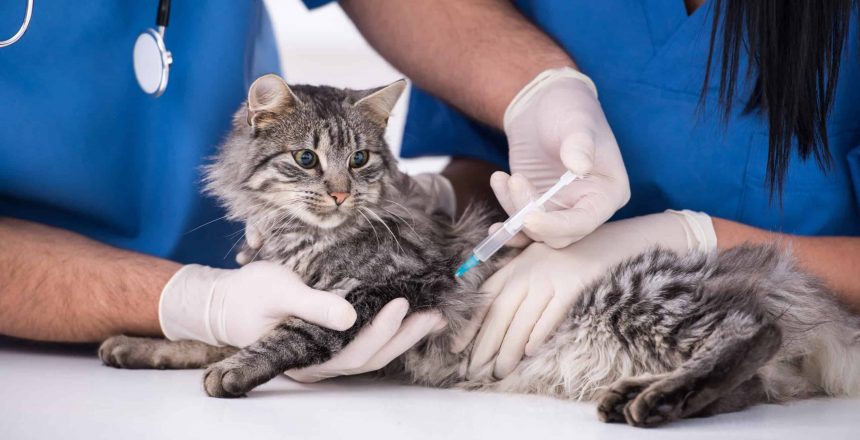As pet owners, we all want the best for our furry friends. One of the most effective ways to ensure a long and healthy life for your dog or cat is to vaccinate them against common illnesses. While vaccination may seem like a no-brainer, it’s essential to understand what a vaccination is and the potential risks involved.
What are Pet Vaccinations, and How Do They Work?
Vaccinations are a preemptive measure administered to your dog or cat to prepare their immune system to fight off any illness-causing microorganisms that might enter into their body.
Vaccines (usually administered by way of injection) contain antigens, which to the immune system appear to be harmful organisms, but don’t cause any illness. After the antigens make their way into the bloodstream, the immune system is activated and essentially “learns” how to fight the disease. So if your pet is ever exposed to the real thing, its body will be prepared and ready to combat the illness-causing microorganisms.
Pet vaccinations are typically separated into two categories: core vaccines and non-core vaccines. Core vaccines prevent diseases and illnesses with high infection rates, which means they have a high chance of spreading to other animals or humans or are life-threatening.
Non-core vaccines are optional vaccinations for dogs and cats with specific needs and risk factors. Your vet may recommend different non-core vaccines depending on your pets, age, lifestyle, breed, or where you live.
The Most Common Pet Vaccines
Below is a list of the most common core and non-core vaccines according to the ASPCA.
Common Pet Vaccinations For Dogs
Core vaccines
- Canine parvovirus
- Distemper
- Canine hepatitis
- Rabies
Non-core vaccines
- Bordetella bronchiseptica
- Borrelia burgdorferi
- Leptospira bacteria
Common Vaccinations for Cats
Core vaccines
- Panleukopenia (feline distemper)
- Feline calicivirus
- Feline herpesvirus type I (rhinotracheitis)
- Rabies
Non-core vaccines
- Feline leukemia virus
- Bordetella
- Chlamydophila felis
- Feline immunodeficiency virus
What are the Risks of Vaccinating my Pet?
While the pros of pet vaccination generally outweigh the cons, there are still some risks involved. Minor risks include:
- swelling or inflammation at the injection site
- lethargy
- temporary loss of muscle strength
In rare cases, your pet could experience more severe side effects following injection. These include:
- fever
- infection
- allergic reactions
Reasons to Vaccinate Your Pets
- It’s required by local law. (The only required vaccine in Washington state is against rabies. The law applies to dogs, cats, and ferrets.)
- It prevents your pets from contracting life-threatening illnesses
- It stops the transfer of illness and disease to other pets and, in some cases, to humans.
- Vaccinations are far more cost-effective than treating a severe illness.
Make the Right Choice for Your Pets
When it comes to the health of your pets, preventing dangerous diseases is crucial. While pet vaccinations have some potential risks, the side effects are minuscule compared to the dangers of contracting rabies or another life-threatening illness.
If you have questions or concerns about vaccinating your dog, cat, or other pet, your local veterinarian can help you identify the best course of action.


